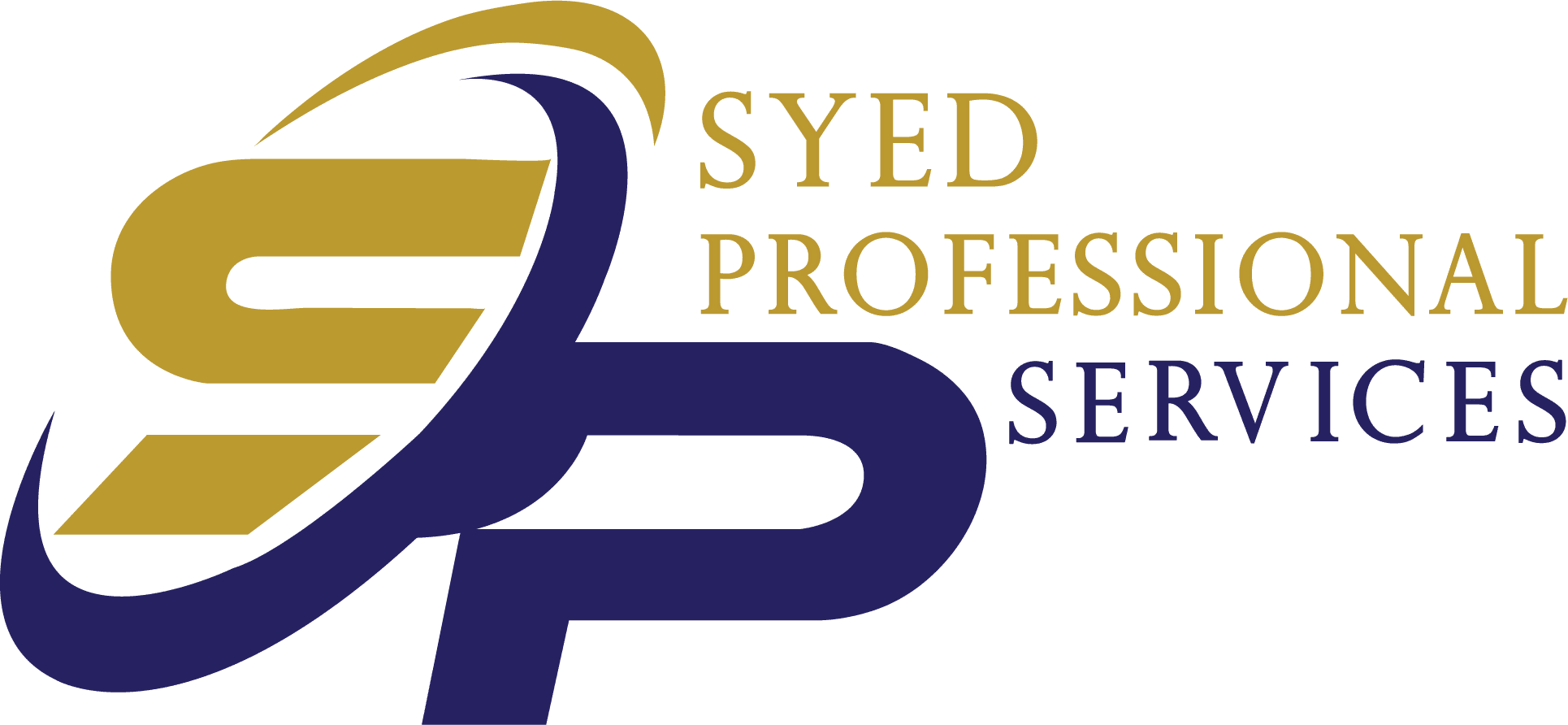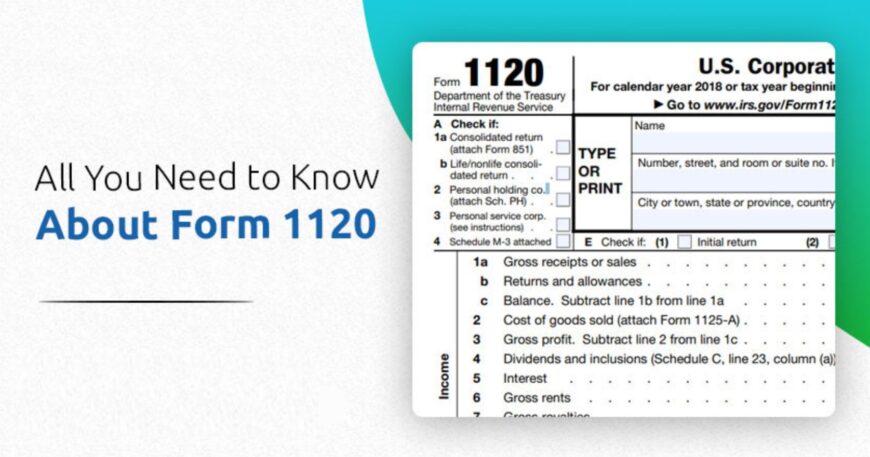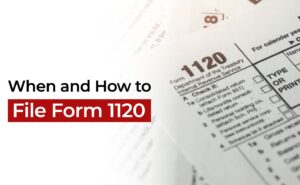Tax obligations will be part of the process if you are running a business. If your company is structured as a corporation, You will probably encounter IRS Form 1120. But what exactly is Form 1120, and how can you ensure that your filing is accurate and timely? In this blog post, we will break down everything you need to know about IRS Form 1120, including its purpose, who needs to file it, instructions, deadlines, and where to file it. Let’s Let’sin!
What is IRS Form 1120?
An income tax return on which a corporation reports its income, deductions, gains, losses, and tax liabilities is an IRS Form. You must file it annually to determine the tax amount a corporation owes for the previous fiscal year. Small and large corporations must file using this Form, and the submission must be accurate to avoid penalties.
Unlike LLCs or S corporations, C corporations’ taxes differ from those of their owners. The business pays taxes on its income, the sit’satestatee income of individual owners or shareholders.
Why Must Corporations File Form 1120?
Any C corporation must file this Form to comply with all federal tax requirements. Filing this form will ensure that your corporation has adhered to federal tax regulations regarding its corporate tax return.
Report its income: All the sources of revenues, such as sales, investments, and interest.
Claim deductions: The business may reduce its taxable income by deducting various expenses, such as operational expenses, salaries, and benefits.
Determine tax liability: The IRS calculates the corporation’s taxes after it reports its income and claimed deductions.
Filing this form helps the Internal Revenue Service evaluate whether the corporation conforms to tax policies and can save the corporation from penalties imposed.
What is Form 1120 used for?
Form 1120 is mainly used to file the financial situation of a corporation. Which encompasses the following:
Income and Revenue: All gains realized from its operations, investment, and any other activities
Deductions: Business-related expenses, amortization, and employee benefits reduce income.
Tax credits: Some tax credits would reduce the entire tax liability of the corporation.
Form 1120 ensures that C corporations pay income taxes to the IRS. It’s an annual statement that outlines the business’s financial health.
How to File IRS Form 1120: A Step-by-Step Procedure
If you are unfamiliar with corporate tax filing, filing Form 1120 can be somewhat complex. However, breaking down the steps makes it easy. Here are step-by-step instructions for filling out IRS Form 1120.
Prepare Your Financial Records
Before filing Form 1120, ensure you have all your supporting documents ready for the corporation to report its income and deductions properly. You need a profit and loss statement, a balance sheet, and capital gains or losses.
Complete the Form
Begin by filling out the basic information about your corporation, including its legal name, employer identification number (EIN), and tax year. Then, proceed to the income section, followed by the deductions and credits.
Review and Attach Schedules
Attach any additional schedules you may have, such as Schedule G, which is information about the corporation’s shareholders, and Schedule C, which you will use in the report on the accounting methods of the corporation.
File the Form
Once you have completed Form 1120, you can file it electronically through the IRS e-file system or send a paper copy to the correct IRS address.
Where to File IRS Form 1120?
What location The location 1120 is located depends on your corporate corporation’s physical location. If you submit a paper return, you must address the Form to the IRS processing centre corresponding with your corporate corporation electronically; you can file the Form using the IRS e-file system. E-filing is preferred because of the accelerating speed of processing and minimizing probable errors.
Correct Address for Filing—Follow the IRS instructions for Form 1120 or obtain them by visiting the IRS website.
When Is Form 1120 Due?
Form 1120 must be filed annually. It is due on the 15th day of the fourth month after the end of the corporation’s fiscal year, which follows the calendar year ending on December 31. The due date is April 15 of the following year.
If the filing date is on a weekend or holiday, the deadline is extended to the following business day. Filing this Form on time is essential, as failure to file will attract some penalties and charges in interest. You can use Form 7004 to seek an automatic extension of 6 months if you cannot file Form 1120 within the time required.
Form 1120 Common Mistakes to Avoid:
While completing Form 1120 is not complicated once you understand the requisites, some minor mistakes are common to many businesses. Here are a few things to keep in mind:
Missing or incorrect information: Make sure all business information is correct, starting with the EIN, followed by the business name, and then the tax year.
Incorrect deductions: Only claim valid deductions. Mistakes here can trigger audits or cause the processing to be behind longer.
Missing schedules: Remember to file all the schedules the business needs. Schedule C may be required when accounting methods need to be changed.
Late filing: Late filing results in penalties and interest charges. Mark the deadline well in advance to ensure a timely filing date.
How Syed Professional Services Can Help with Form 1120
Filing out IRS 1120 does not need to be the most troublesome work. Contact us at Syed Professional Services and get corporate tax preparation about a corporate tax form filing. You can resolve the complexity of completing the 1120 Form by speaking with our services.
Our team of experts ensures that your Form 1120 is filed correctly, on time, and with the maximum possible deductions. We help you navigate the complexities of corporate taxation so you can focus on running your business.
Frequently Asked Questions
What is IRS Form 1120 used for?
IC corporations use IRS Form 1120 to report their income, deductions, and tax liability to the IRS. For a cal due by the 15th day of the fourth month following the end of your corporation’s year on April 1.
Is there a calendar-year corporate returns e-file option?
Yes, the Form 1120 can be filed electronically via the IRS e-file system.
What happens if I miss the deadline for Form 1120?
Penalties and interest will be charged if you fail to file by the deadline. However, you can get an automatic 6-month extension by filing Form 7004.
What business expenses can I deduct from Form 1120?
Common Form 1120 business expense deductions include employee wages, operating costs, and several tax credits.
How does Syed Professional Services help with Form 1120?
Syed Professional Services offers professional tax preparation and filing services,so this form can be filed correctly and on time.
Conclusion
Form 1120 is a significant document for every C corporation; it helps the business follow all the federal tax laws. Whether you are filing for the first time or seeking professional guidance, understanding the process is key to avoiding penalties and maximizing deductions. The proper preparation and knowledge can make filing Form 112,0 not such a daunting task. If you need professional assistance, Syed Professional Services is here to help. Let us take the complexity out of corporate tax filings so you can focus on growing your business.





